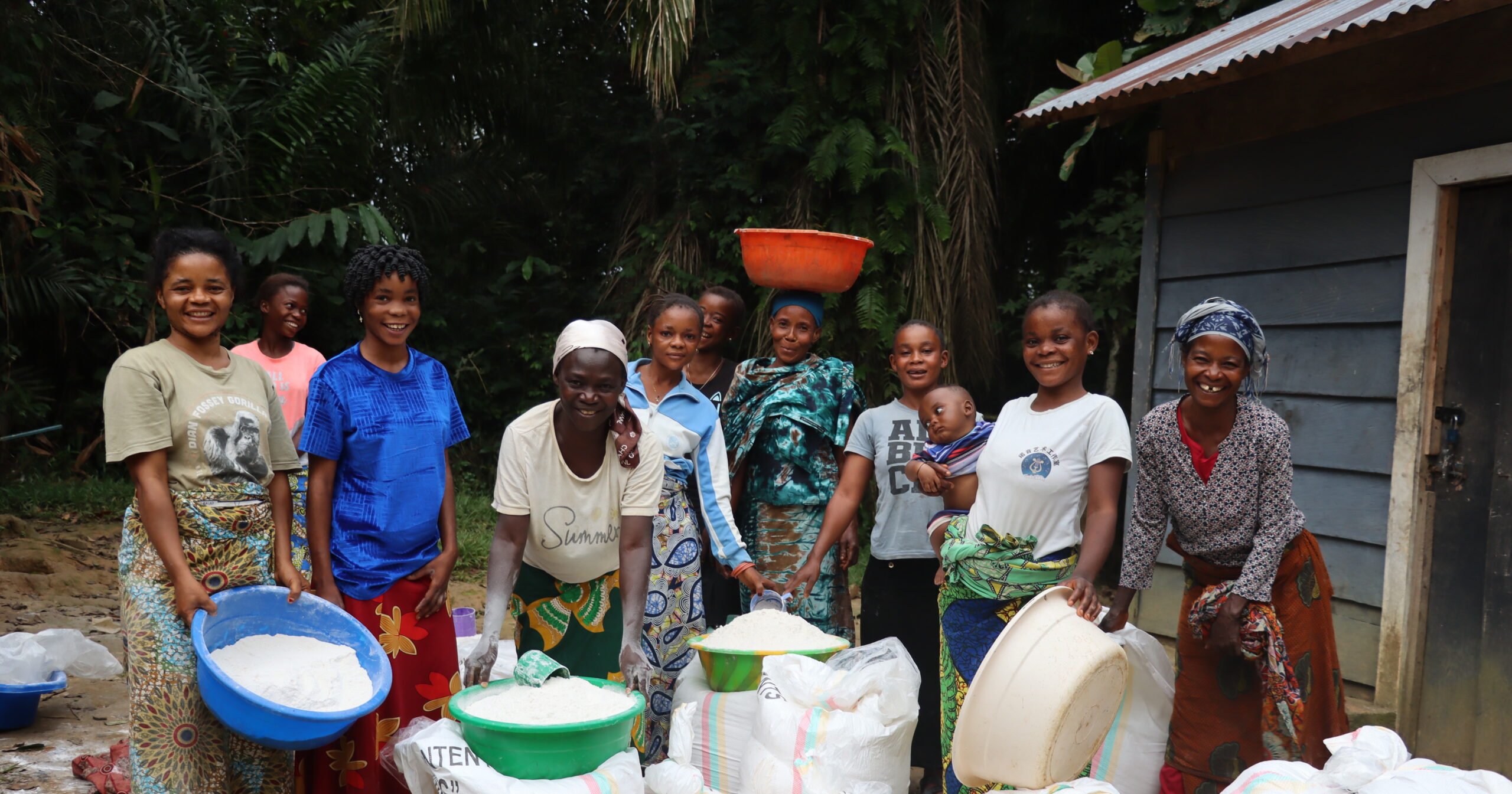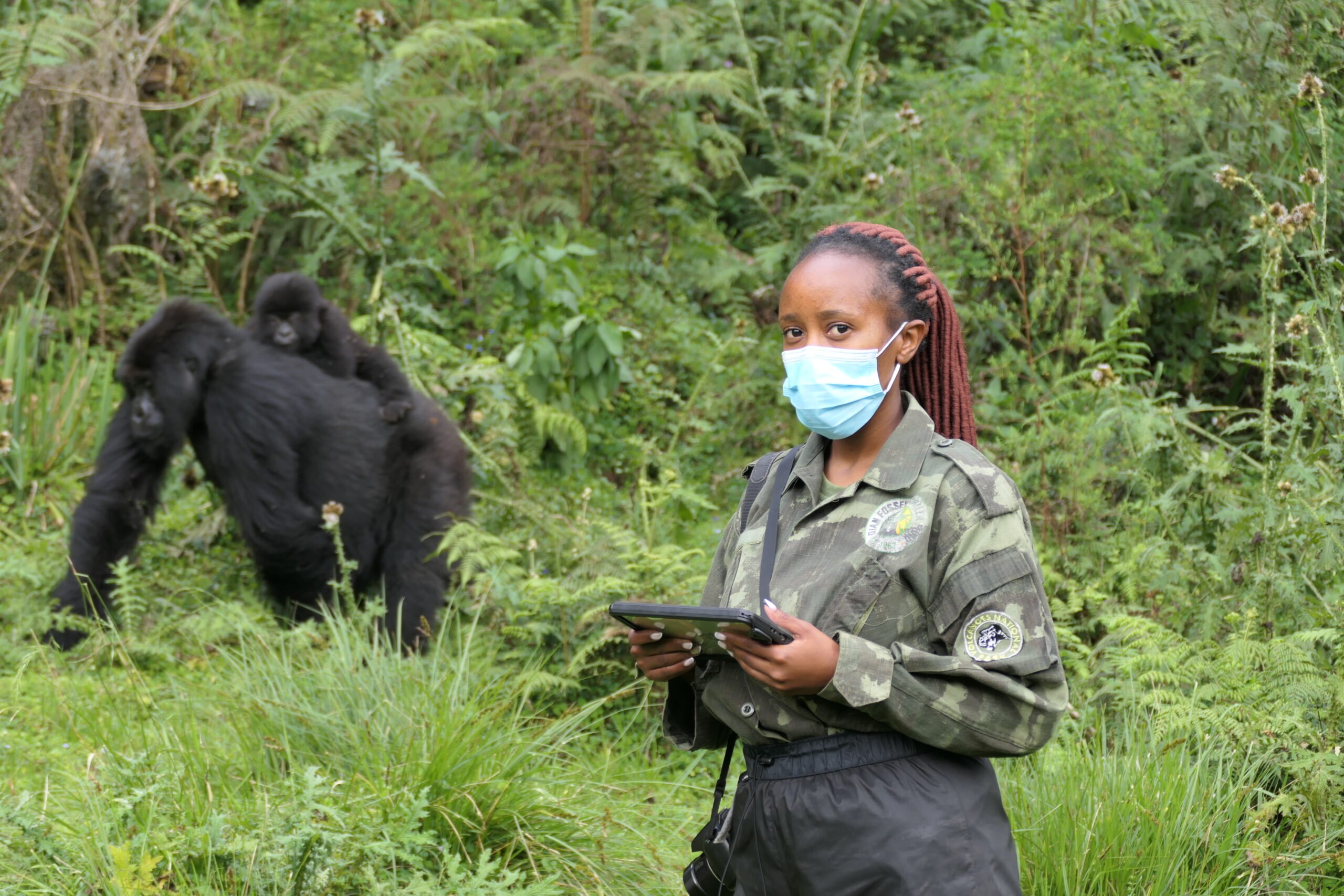The Dian Fossey Gorilla Fund believes that conservation works best when it is a community effort. Yet many people who live near the gorilla forests face critical needs and poverty. Our many community programs help address these issues and also bring educational opportunities to thousands of children and adults.
This year, we are proud to add a new initiative to our educational efforts in Rwanda, where we already reach more than 7,000 elementary school children and 3,000 secondary school children each year, all of whom live in communities near Volcanoes National Park, home to the endangered mountain gorillas. The new program, called “Girls in Conservation,” focuses on furthering the education of female students in secondary schools through special workshops, mentorships and scholarships.
This program is especially important because financial constraints often mean that girls in these communities do not have the opportunity to continue their education, as they are needed to assist with household activities and because of school fees and other expenses. Providing education for women also has positive results for conservation and the environment in many direct and indirect ways.
To help address this, a group of women from the Dian Fossey Gorilla Fund, many of whom were themselves the beneficiaries of mentorship and support, initiated a project to help mentor and provide financial support to promising young female students from nearby communities, ensuring that they would have the resources to complete their studies, pursue growth opportunities, and be able to consider various professional opportunities, including careers in conservation.
“You can’t become what you can’t see,” says Nadia Niyonizeye, who helped start this new project. Niyonizeye became a researcher with the Fossey Fund five years ago, after first working with us in our college-student program and then as a professional intern. “Our goal is to instill confidence in these girls, helping them to realize their potential,” she says.

The inaugural Girls in Conservation workshop was conducted at our Ellen DeGeneres campus this summer, and included 37 girls. They were paired with mentors from our staff and others working in conservation in the region who are actively involved in conservation careers and participated in a variety of interactive learning sessions.
Continuing support for girls’ schooling
In addition to the programs provided for these young students at our campus, we also made plans to provide scholarships for as many as possible to attend public boarding schools in Rwanda, where they can obtain the best educational opportunities. With additional funding, we were able to provide support for 16 students to attend boarding schools starting this fall, as well as providing notebooks and other needed materials.

One parent, Eliada Twasabyimana, who never had such educational opportunities herself, reflected on this opportunity.
“I am very happy that you gave my child a chance… I hope this program continues because it will inspire and empower girls.”
Felix Ndagijimana, who oversees all of the Fossey Fund’s programs in Rwanda, says: “Our aim is to ensure that these girls have what they need to do well in school. But more than that, we want them to be leaders, to teach about conservation, maybe even start environmental clubs. They are our future, and we believe they’ll make a difference.”
Everyone hopes that this program will be an important new pathway in our community engagement efforts, changing not just the lives of these girls but the fabric of the community around Volcanoes National Park. Through addressing the inequalities women face, we hope to provide more income opportunities and therefore lessen the reliance on gorilla habitat for resources. Conservation thrives best when communities are thriving too.






